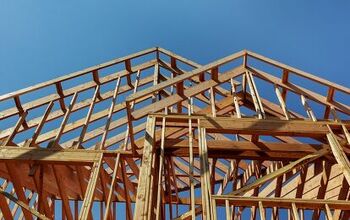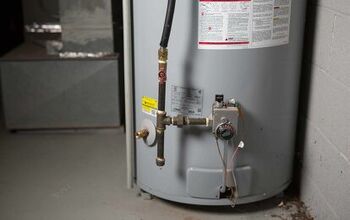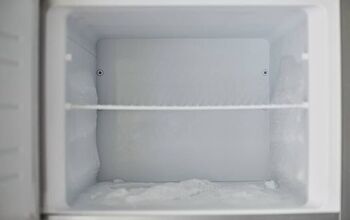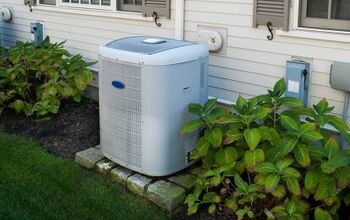How Thick Should Garage Walls Be

It is important that your garage is as reliable as the rest of your home. Not only do many people use their garages multiple times a day, but it often houses some of your most valuable possessions. Therefore, it is essential your garage is built strong, with walls that can stand the test of time. But when it comes to your garage walls, you may wonder how thick they measure.
The average exterior garage wall is 6.5 inches thick. Some garage walls can be as thin as 4.5 inches. There are often local laws and building codes dictating how thick a garage wall must be. Your climate, local laws, and whether or not your garage has a second level all impact how much thicker the walls must be, which can easily range upwards of 10 inches.
In order to get a clear picture of how thick your garage walls should be, you need to understand how a garage is built. A garage wall often has many essential parts. All of these parts serve their purpose, and can add thickness to the wall.
Exterior Garage Wall Thickness
If your garage walls are exterior walls, they are normally thicker than interior walls. The average thickness of exterior garage walls is between 6 and 7 inches. This number, however, will depend on several factors, especially since these walls are exposed to outdoor elements.
While the average exterior garage width may be 6.5 inches or so, you must consider your location. If you live in an area prone to humidity, you will definitely want to invest in a quality vapor barrier. Installing a vapor barrier and an additional layer over the barrier will add more thickness to your exterior garage wall.
Even though most walls that are 6 inches thick should provide some insulation, you may require more. If your garage is heated, or you live in a particularly hot climate, you will need additional insulation. Insulation can add several inches of thickness to your garage, depending on how you decide to insulate.
In the end, your exterior garage walls may be less than 6 inches thick if you live in a mild climate, and your walls do not need to hold much weight (and zoning does not require a certain thickness). If, however, you need a vapor barrier, insulation, or the law requires it, your exterior garage walls may be 9 inches thick, or even thicker.
Interior Garage Wall Thickness
Interior walls are, in most cases, thinner than most exterior walls. Therefore, interior garage walls can be as thin as 4.5 inches. The main reason for this is that interior walls may be connected to an additional wall. Also, they are not connected to outdoor elements. This means they are less likely to require as much insulation, and may not require a vapor barrier (as one may already exist between the garage and the house).
Sometimes you can get away with walls that are as thin as 4.5 inches thick, depending on the materials used. Keep in mind, this is something you should run by a professional before constructing on your own. Keep in mind wall thickness for interior and exterior walls will need to change dramatically if the garage is supporting something above, like a second floor.
Still, it is often best to always air on the side of caution. For this reason, it is normally recommended that all garage walls are at least 6 inches thick.
How Materials Used Affects Thickness Of Your Garage Walls
While there are standards that determine the average thickness of garage walls, there are other factors. In addition to the base thickness of the wall structure, there are other materials that act as support structures to consider.
Drywall
Drywall is a common addition to many garage walls. It is often the outer barrier used when you install insulation, or even a vapor guard. You do not necessarily need drywall, but it does have its benefits.
For one, it will give your garage a finished look. Instead of seeing all the “bones” (plywood, insulation, studs), you only see the blank canvas of drywall. It can also be painted, giving it an even more finished look.
The other main reason to use drywall is it acts as a first line of defense from fire. There are often combustible things in your garage. If your garage is built of exposed wood, it is at a much higher risk for a major fire incident.
Drywall is a popular addition to a garage wall, but keep in mind that just the drywall will add at least an inch or so of thickness to each wall.
Plywood
Plywood is now one of the most common materials used to sheath garage walls. As a rule, and according to most codes, the wood must be at least 3/8 inch thick. This sheathing is also covered by drywall, which in turn will add even more thickness to the wall.
Concrete Slab
Concrete slab is a very common building material for garage walls, especially exterior ones. This slab usually averages between 6-9 inches thick. This is enough to create a sturdy wall to hold the garage.
Still there may be an extra 1 to 6 inches added if you decide to add drywall, a vapor barrier, or further insulation. But the concrete wall itself will be at least six inches thick.
Single Level vs. Double Level Garage Walls
If you have a single level garage, you will likely need a different wall thickness than if you have a double level garage. Most importantly, double level garages must be stronger than a typical wall, as they will have to hold twice as much (or possibly more) weight than a single level garage. The standard thickness of 6.5 inches applies only to garages that are single level.
The thickness of your double level garage depends on a few factors. Most importantly, the design and purpose of the second floor has a lot to do with the necessary wall thickness. If the second floor is light and mostly cosmetic, you are likely able to get away with 9 inch walls, as long as it is up to code.
If, however, you are building a fully functional second floor, you may need even more wall support. Once you are embarking on a project of that size, you should not only look into building codes, but you also should consult and hire a professional to assist you with your plans.
Attached Garage vs. Detached Garage
Whether or not your garage is attached to your home can also play into the wall thickness. Attached garages do not have as many exterior walls. This means at least some of the walls may be thinner than those of detached garages.
It is important to note, however, that building codes may also have stricter standards and regulations when it comes to attached walls, as they are connected to the dwelling.
Detached garages have exterior walls on all four sides, meaning all four walls must be weatherproof. If your garage is insulated and heated that means your walls will likely measure around 9 inches thick.
How Climate Relates To Garage Wall Thickness
The location of your garage and your climate can also factor into how thick your garage walls have to be. As with any building, the needs for the walls depend on temperature extremes, rainfall and humidity.
In regards to temperature, if you live in a cold climate, the odds are you will need thicker garage walls than those living in a warmer climate. Colder climates require isolation in all walls. This is particularly important if you have a heated garage.
If you live somewhere with lots of rain or snow, or somewhere with high humidity, you may also need a vapor barrier. A vapor barrier is added to walls to ensure that vapor does not seep into or through the walls. It helps keep the walls from rotting and deteriorating. While vapor barriers themselves are often thin, they normally require an additional layer of material (i.e. drywall or other covering) to protect it and keep it in place.
Local Building Laws
When you are trying to find out how thick your garage walls should be, check your local laws and building codes. Sure, it is important to know the science and math behind how wide your walls should be, but the law is the law.
Almost all municipalities have standards on how thick the walls should be. While nearly every area has these rules, they are not all the same. In fact, wall thickness and other building laws in regard to walls can vary significantly.
When you live in a colder area, for example, you might have stricter or more specific rules as to the thickness of your garage walls. There are also laws about materials necessary for your garage. Areas prone to fires, for example, may require added layers of fire protection. This will make your wall thicker than if you did not have this added protection.
Consult A Licensed Professional
Deciding how thick your garage walls should be is not simply an aesthetic home improvement decision. It is a matter of law and safety. Talk to a professional about your garage wall thickness.
A local professional knows all the local laws and building codes. He or she will also be able to provide you with helpful advice in regards to what materials and methods work best in your climate and region.
While professional help is always more than doing things yourself, these professional tips can save you a lot in the long run. Also, when it comes to building integrity, it is always comforting to have the peace of mind that a professional helped with the installation.
Summing Up How Thick Your Garage Walls Should Be
The general average thickness of a garage wall is around 6.5 inches. While this number is the average, there are many factors that can adjust this number. Everything from adding drywall to insulation can add inches. Remember that your climate and whether or not your garage has a second floor can also have a big impact on how thick your garage walls are. At the end of the day, however, it is building codes and local laws that dictate how thick your garage walls must be.

Tom Gaffey is an expert writer who currently resides in Washington D.C. Tom has a passion for real estate and home improvement writing, as well as travel and lifestyle writing. He lived the last twelve years in Hawaii where he worked closely with luxury resorts and event planners, mastering his knowledge of aesthetics and luxury products. This is where he found his passion for home improvement and a keen interest in DIY projects. Currently, Tom resides in Washington D.C, and also working on his debut fiction novel.
More by Tom Gaffey



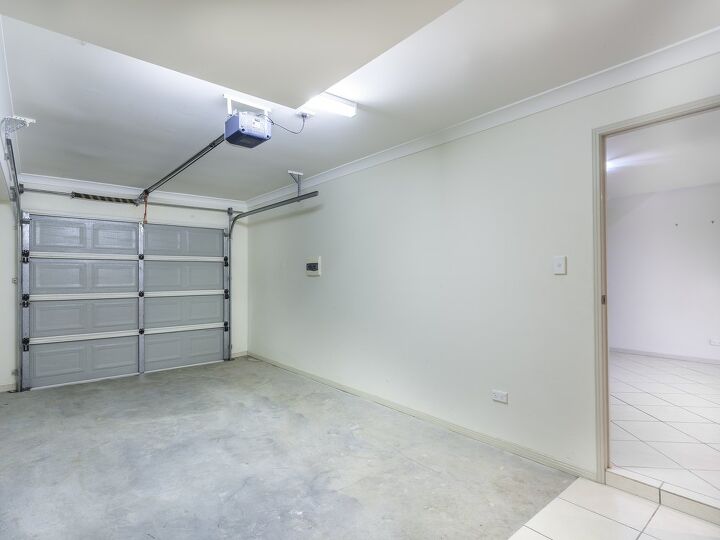






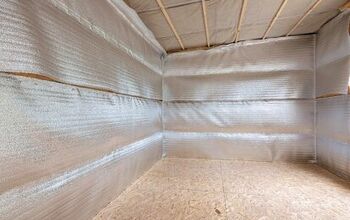
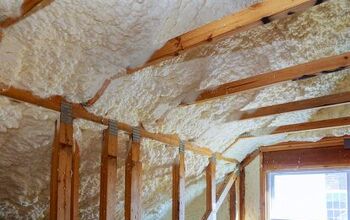
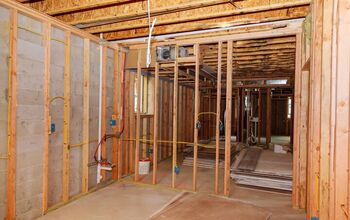
![10 Best Electric Pressure Washers – [2022 Reviews & Guide]](https://cdn-fastly.upgradedhome.com/media/2023/07/31/9070600/10-best-electric-pressure-washers-2022-reviews-guide.jpg?size=350x220)
